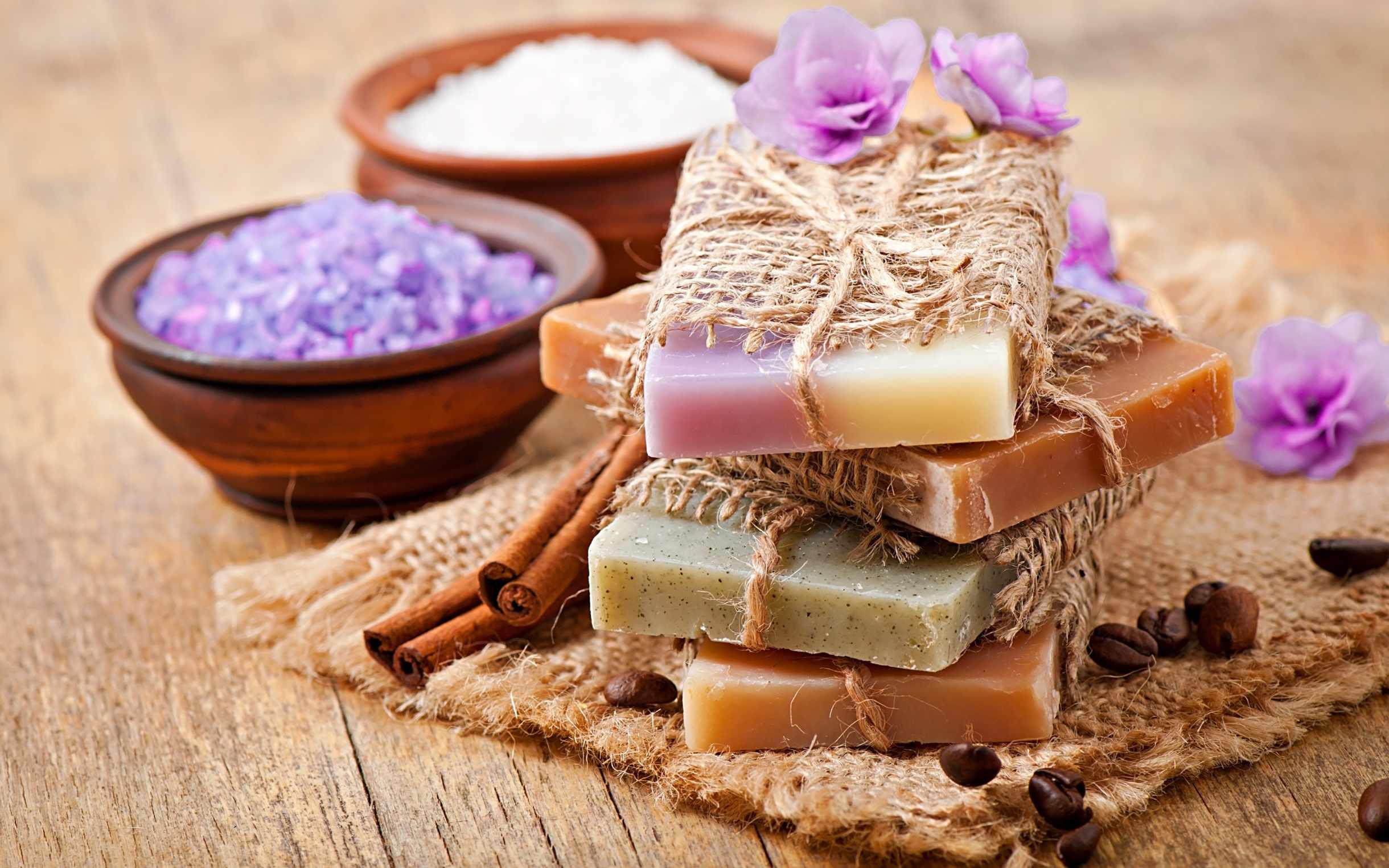Your cart is currently empty!

Homemade Soap Types
When I got into soap making, I found a great wealth of information online about two types of soap: bar soap and laundry detergent. Both soap types are fun to make and very rewarding when you are using them knowing that you made them.
There are also other forms of soaps that are used for personal and household purposes. I won’t be covering industrial soaps just because they are out of my homesteader’s domain. So let’s take a look at different kinds of soap.
Soap Types

Soap qualities that we strive to achieve, vary depending on the uses of soap. Soaps that produce a lot of foam, for example, are used to remove heavy grease and oils.
Cleaners have abrasives that help remove stains. Soap characteristics, such as hardness, lather, cleansing, moisturizing and emollient properties are determined by chemical properties of oils and fats used in soap making.
Personal Soaps
These are the soaps used for personal hygiene. Personal soaps vary based on type of skin, hair, and different needs. They include moisturizing, medicated, antibacterial, exfoliating, etc. Shampoos and body soaps are also included in this category.

Personal soaps come in many various choices depending on our needs and desires.Perfumed soaps have perfumes added to them.Scented soaps have essential oils and/or aromatic oils added to them to give pleasing fragrances.

Scented Soaps

Perfumed and scented soaps are often made in different shapes and with a coloring added.
Unscented Soaps

Unscented soaps don’t have any fragrances added to them.
They are hypoallergenic, and are used by people with sensitive skin, certain skin disorders or sensitivities (lupus, psoriasis, etc.), people who are allergic to additives, or those who simply don’t want any scent in their soaps.
Novelty Soaps
Novelty soaps have endless possibilities for creative imagination. Various themes, and seasonal soaps make perfect gift and promotional items.
Melt-and-pour glycerin molds are perfect for this purpose.These pebbles and crystal formations are a perfect gift for a geology enthusiast or someone who likes gemstones. Hm, I wonder, how many people like gemstones?



Seasonal Soaps
Seasonal soaps make perfect gifts for the loved ones, and are so much fun to make!






Medicated Soaps
Medicated soaps have disinfectants and antiseptics added to them. Some of the uses of medicated soaps are: acne, scaly or oily skin, dandruff, itchy skin, eczema.


Medicated soaps are also used by those have higher that typical exposure to infection: travelers to tropical areas, hospital workers, etc. Medicated soaps are very beneficial but should be used with care as they may cause unwanted side effects.
Guest Soaps
Guest soaps are usually small in size and come in assortment of shapes, colors, and fragrances to satisfy different tastes. Guest soaps are often shaped like seashells, flowers, hearts.




Sometimes, they come individually wrapped. These soaps are used in hotels, bed and breakfasts, and guest bathrooms.
Glycerin Soaps
Glycerin soaps are the soaps that have glycerin in them. Glycerin is a beneficial byproduct of soap making process. When lye solution is added to oils, it reacts with the fatty acids forming salts and glycerin. Glycerin has wonderful skin moisturizing properties. All homemade soap contains glycerin (unless you learn how remove it by a very complex chemical process). Commercial soaps have glycerin removed for resale or other reasons.






Glycerin soaps are the soaps that have glycerin in them. Glycerin is a beneficial byproduct of soap making process. When lye solution is added to oils, it reacts with the fatty acids forming salts and glycerin. Glycerin has wonderful skin moisturizing properties. All homemade soap contains glycerin (unless you learn how remove it by a very complex chemical process). Commercial soaps have glycerin removed for resale or other reasons.
Kitchen Soaps
Kitchen soaps are used for two main purposes: dish washing detergents and counter/shelf cleaners.
Dish washing detergents are designed to wash off the grease and remove solid particles in their foam. The more foam and bubbles your dish detergent forms, the more effective it is in cleaning and degreasing. The surface tension of water is high. Water does not form sustainable bubbles. Soap reduces the surface tension of water and makes bubbles that last. The bubbles increase the interface between the water and soil (dirt, oils, etc.). Soap works at this interface by absorbing both water-soluble (hydrophilic) and fat-soluble (hydrophobic) molecules. This is called a surfactant (amphiphilic) property of soap.
Hand dish washing detergent is more foamy and more effective than machine dish washing detergent. Dish washing detergents often have scents added. The scents are typically associated with food: lemon, apple, berries, and not so much floral.


Kitchen cleaners are used to remove heavy grease spots, stains, and solid particles. Some cleaners have mild abrasives, some have antibacterial properties, and some are strongly basic and should be handled with care.
Laundry Soaps
Laundry soaps are made to wash grease, stains, food stains, solid particles, dirt, and other compounds from fabrics.

Borax and washing soda are great additives to laundry soaps. Borax is added for brightening colors without bleaching them. Washing soda enhances the cleansing property of soap. Bleach can be used for white fabrics. Laundry soaps are most effective in warm and hot water. They are easy to make on a homestead.
You can make a wide variety of homemade soap.
I hope I sparked your imagination!
What is your favorite soap to make?

Leave a Reply